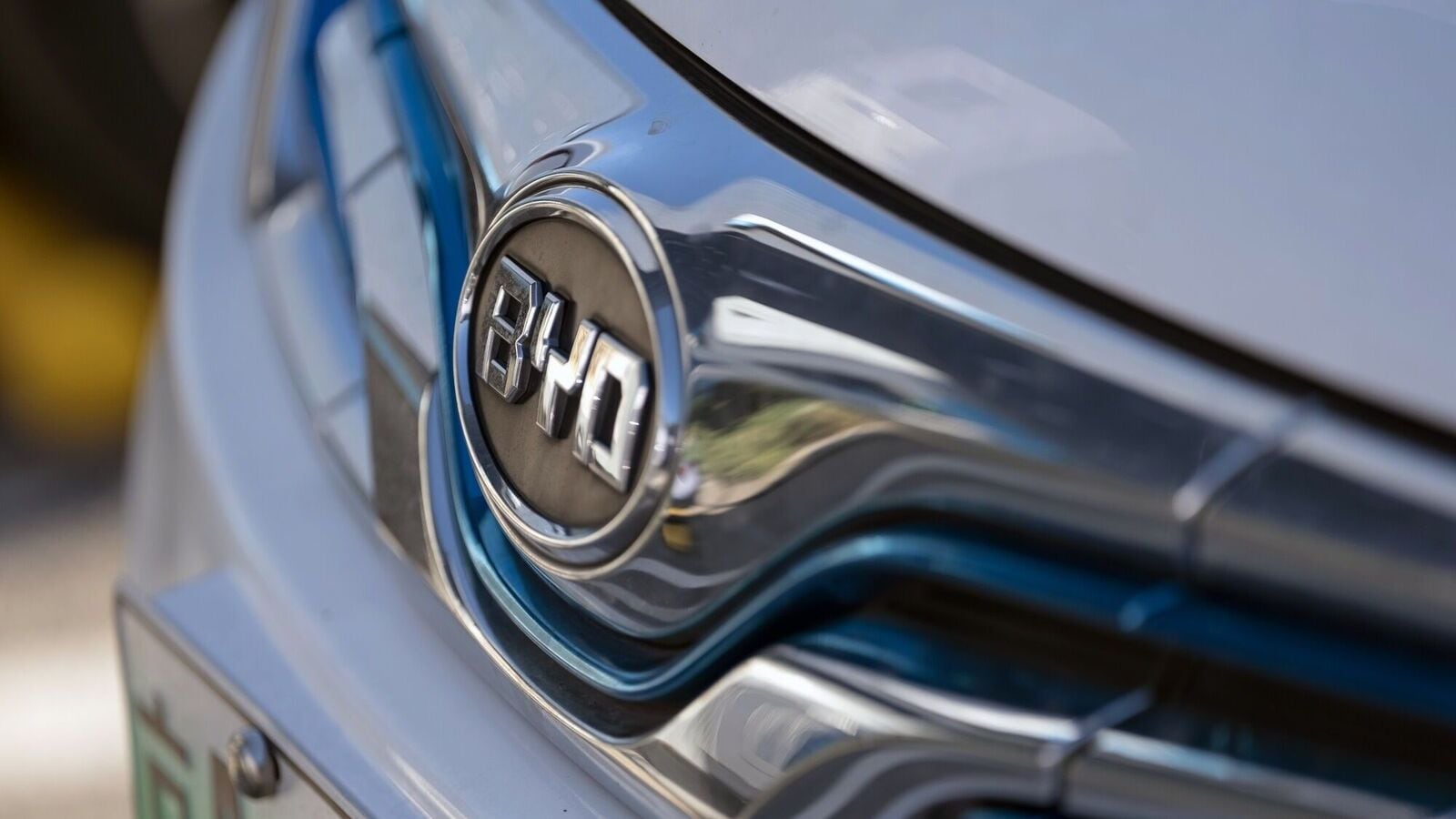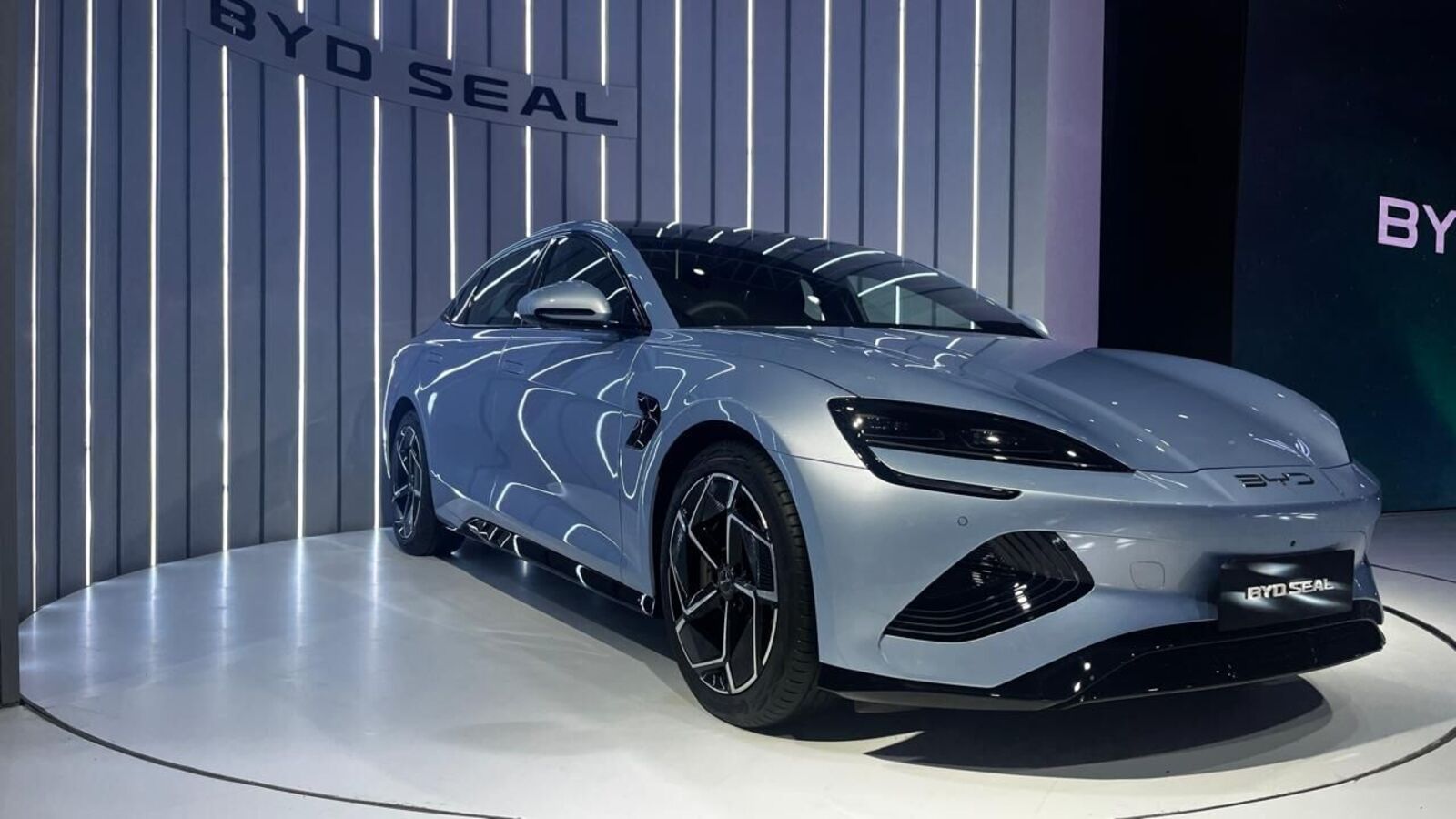The European Union plans to impose a 45 percent tariff on electric cars manufactured and exported from China to EU countries in an effort to help local businesses.
,
The European Union plans to impose a 45 percent tariff on electric cars made and exported from China to EU countries in an effort to help local businesses.
EU members face a decisive vote on Friday on whether to impose tariffs of up to 45% on imports of Chinese-made electric vehicles in the bloc's highest-profile trade case that risks retaliation from Beijing.
The European Commission, which oversees the bloc's trade policy, proposed final duties for the next five years to combat unfair Chinese subsidies after a year-long anti-subsidy investigation.
Under EU rules, the Commission can impose tariffs for the next five years unless a qualified majority of the 15 European countries representing 65% of the EU's population vote against the plan.
Also read: Germany to vote against EU tariffs on Chinese electric vehicles
Reuters reported on Wednesday that France, Greece, Italy and Poland would vote in favor, enough to prevent a blocking majority against the tariffs.
Either way, in the absence of a qualified majority, the EU Executive can adopt tariffs. However, he can also submit a revised proposal if he wants to get more support.
The region's top economy and major carmaker, Germany, will vote against the introduction of tariffs, people with knowledge of the matter told Reuters late on Thursday.
German carmakers, whose sales to China represent about a third, have been particularly vocal against the tariffs. Volkswagen said they were “the wrong approach”.
Also Read: Skoda Alroq promising 560 km range makes global debut, likely to launch in India in 2025
Spain's economy minister, previously a tariff supporter, said in a letter to European Commission Vice President Valdis Dombrowski seen by Reuters on Thursday that instead of imposing tariffs, the EU should “keep negotiations open beyond a binding vote.” ..” “To reach a deal on prices as well as to shift battery production to the block.
Spanish Prime Minister Pedro Sanchez had earlier said during his visit to China that the EU should reconsider its position.
Some EU members are nervous about Beijing's reaction. In moves seen as retaliation, Beijing this year launched its own investigation into EU imports of brandy, dairy and pork products.
However, the EU's stance towards Beijing has hardened over the past five years, now viewing China not only as a potential partner on some issues, but also as a competitor and a systemic rival.
Recommended Watch: Is it ever too luxurious with the Mercedes-Benz EQS?
The Commission says China's spare production capacity of 3 million EVs per year that needs to be exported is twice the size of the EU market. Given the 100% tariffs in the United States and Canada, the most obvious outlet for those EVs is Europe.
The EU executive has said it is willing to continue negotiations with China on alternatives to tariffs and may re-examine a price undertaking – including a minimum import price and usually a volume cap – that has previously barred Chinese companies. The offer presented by was rejected.
An option under negotiation is to calculate minimum import prices using criteria such as the electric vehicle's range, battery performance and length, as well as whether it is two- or four-wheel drive, a source familiar with the matter said.
Tariffs range from 7.8% for Tesla to 35.3% for SAIC and other companies that are believed not to have cooperated with the EU investigation. These tariffs are on top of the EU's standard 10% import duty on cars.
Check out upcoming EV cars in India.
First publication date: 04 October 2024, 08:38 am IST


